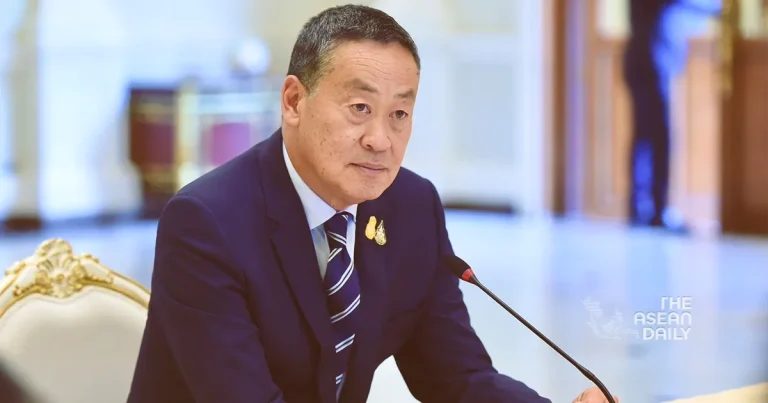13-8-2024 (BANGKOK) Thailand’s political landscape stands on the precipice of yet another potential upheaval as Prime Minister Srettha Thavisin awaits a crucial ruling from the Constitutional Court this week. The verdict, centred on Srettha’s controversial appointment of a Cabinet minister with a criminal record, could potentially see the Prime Minister removed from office, barely six months into his tenure.
This latest political drama unfolds just a week after the same court delivered a seismic blow to Thailand’s opposition, disbanding the Move Forward Party and banning its former leader, Pita Limjaroenrat, from politics for a decade. The rapid succession of high-stakes legal interventions has intensified concerns about judicial influence on Thailand’s fragile democracy.
At the heart of the current case is Srettha’s appointment of Pichit Chuenban, a lawyer with close ties to the family of former Prime Minister Thaksin Shinawatra, as a minister. Pichit’s 2008 conviction for a corruption-related offence, resulting in a six-month prison sentence, forms the crux of the ethical challenge against Srettha.
Despite Pichit’s resignation in an attempt to shield the Prime Minister, the Constitutional Court agreed to hear the case, initiated by a complaint from army-appointed senators. Srettha, leading the Pheu Thai party in a multi-party coalition government, has defended the appointment, asserting that Pichit underwent thorough vetting.
The potential outcomes of this ruling are far-reaching. If Srettha is removed from office, the Pheu Thai party would be compelled to nominate a new candidate for prime minister. However, political analyst Thitinan Pongsudhirak suggests that Srettha’s ousting is unlikely, citing the difficulty in finding a suitable replacement and acknowledging the Prime Minister’s diligent efforts thus far.
Srettha, a former real estate developer who entered politics just last year, has faced significant opposition to his policies since taking office. A June poll indicated that a majority of Thais reject his agenda, which includes controversial proposals such as recriminalising cannabis and distributing substantial cash handouts to over 40 million Thais.
The case has reignited debates about the role of Thailand’s judiciary in shaping the country’s political landscape. Critics, including the recently banned Pita, have warned against the use of “a politicised court as a weapon to destroy political parties”. The European Union, the United States, the United Nations, and various human rights groups have voiced concerns about the court’s recent decisions, particularly the disbandment of the Move Forward Party, with the EU stating that it undermines democratic openness in Thailand.
In response to their party’s dissolution, former members of the Move Forward Party have launched a new political movement called “The People’s Party”, aiming to drive change in the next national election scheduled for 2027.
This latest political turmoil serves as a stark reminder of Thailand’s tumultuous political history, marked by frequent coups and instability since the end of absolute monarchy in 1932.




